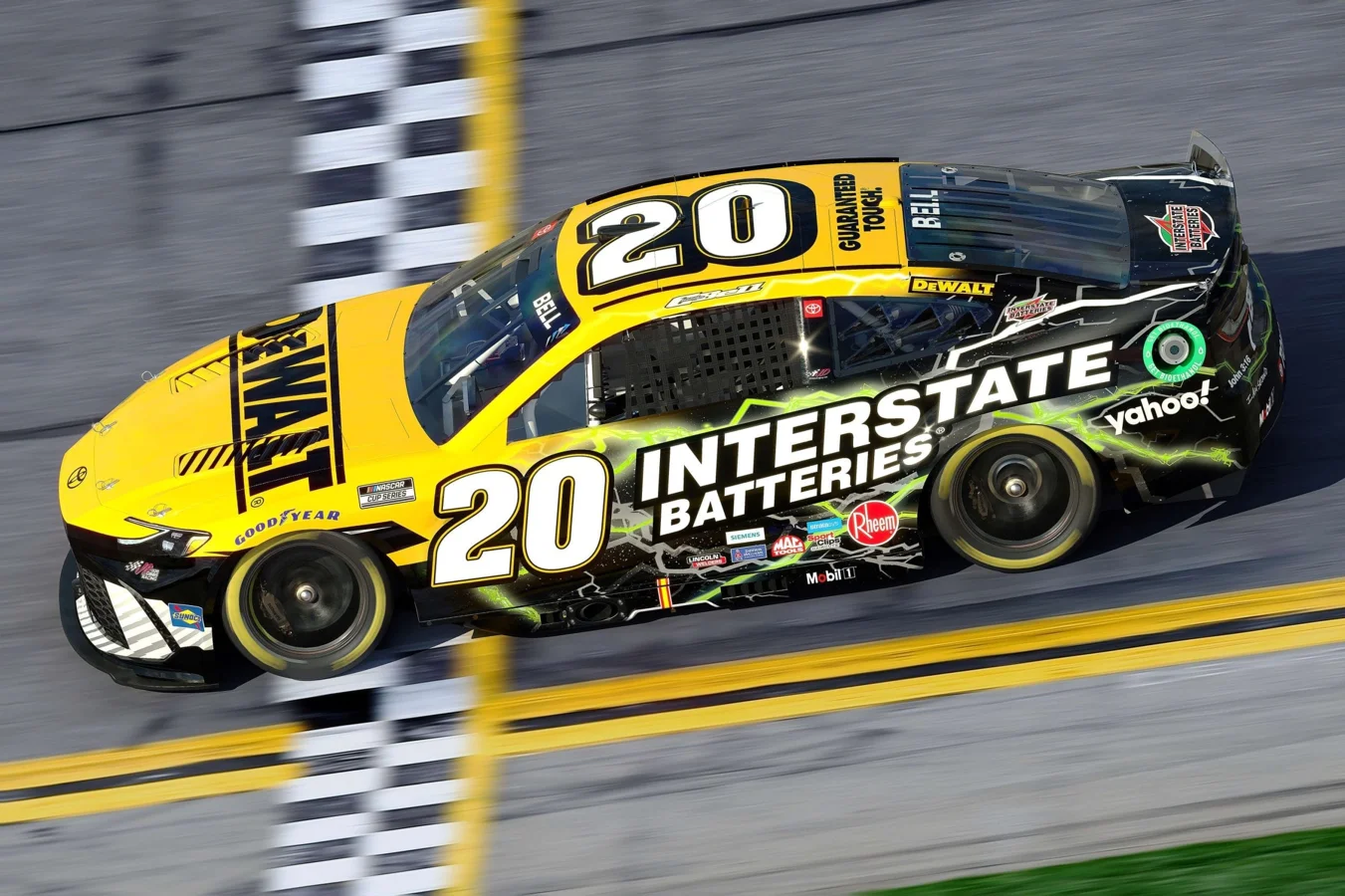During recent NASCAR events, two on-track crashes involving Austin Hill and Christopher Bell were handled in contrasting ways by officials, sparking debate among fans and observers. The differing outcomes raised questions over the consistency of NASCAR’s decision-making regarding crash incidents. According to NASCAR reporter Jeff Gluck, the distinguishing factor was the intent behind the crashes, with Bell’s incident deemed unintentional while Hill’s was classified as deliberate.
In the Xfinity Series race at Indianapolis Motor Speedway (IMS), Austin Hill caused a crash that took out Aric Almirola after being bumped by the No. 19 driver. This incident received serious scrutiny, resulting in Hill being suspended for one week. The suspension effectively barred Hill from participating in the playoffs that season, despite his three race wins.
Meanwhile, Christopher Bell’s crash with Zane Smith just a day later was treated more leniently. NASCAR described Bell’s maneuver as a “mistimed” but aggressive move, differentiating it from Hill’s incident, which was viewed as retaliatory and intentional:
“That incident was reviewed and NASCAR viewed it as an aggressive, but mistimed, racing move by Bell and not a move of retaliation that rose to the level of a penalty.”
While Hill lost all his accumulated playoff points due to his penalty, Bell faced no such punishment and remained eligible for the Cup Series playoffs. This discrepancy led a fan to publicly question why the same rules were not applied to Bell. Jeff Gluck responded by clarifying the situation, emphasizing the distinction between an accident and a deliberate act:

“It was mentioned and covered. One was ruled intentional, one was clearly an accident. You don’t get suspended if NASCAR believes it was an accident. On Stacking Pennies, @SkipFlores described how Bell approched every member of the team to apologize immediately after the race.”
In that same weekend, Bell finished eighth at the Brickyard 400, while Hill ended the Xfinity race at IMS in 34th place after a five-lap penalty was applied.
Christopher Bell’s On-Track Efforts and Post-Race Response
Starting 16th in the Brickyard 400, Christopher Bell advanced steadily through the field despite a less-than-ideal qualifying position. As he pushed to gain positions, he misjudged a move on the FRM driver, which led to the controversial crash. Bell accepted responsibility and apologized to the crew of the No. 38 car involved.
In a post-race interview, Bell expressed his wish for the incident to be understood as a racing mistake rather than a deliberate act. He remarked:
“Obviously, it was a mistake and I think the general consensus was the 21 (Hill) deal wasn’t a mistake. It sucks because I did hook him to the right and there’s been plenty of cases where people have done that exact same mistake, but it’s been to the inside… I hope that whenever people see that, they’re like ‘yeah, he didn’t mean to do that.'”
Currently, Bell holds fifth place in the regular season standings and has secured three race victories so far this season.
Implications of NASCAR’s Ruling on Playoff Contention
The contrasting penalty decisions highlight the challenges NASCAR faces in distinguishing between intentional and accidental incidents during fast-paced, competitive races. The ruling in favor of Bell allowed him to continue accumulating playoff points without interruption, in contrast to Hill, who was penalized severely enough to lose eligibility for the postseason despite strong prior performances.
These decisions impact drivers’ playoff prospects and set precedents for future incident evaluations. As NASCAR continues to navigate the line between aggressive racing and dangerous conduct, such judgments carry significant consequences for the drivers, teams, and fans invested in the competition.
